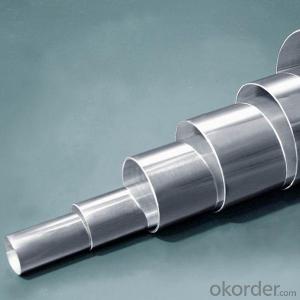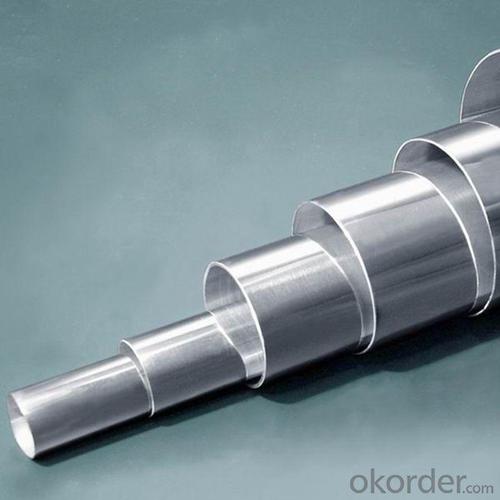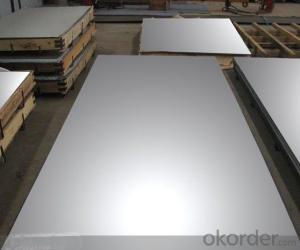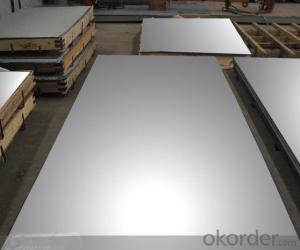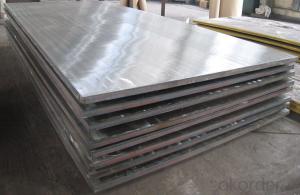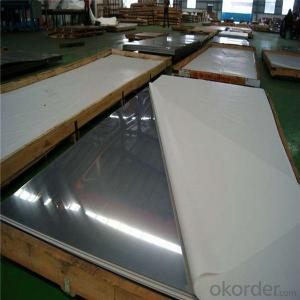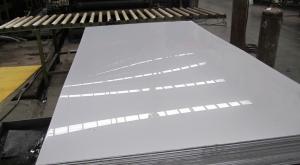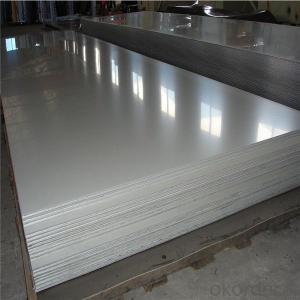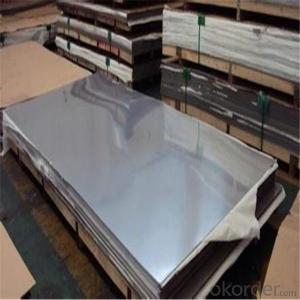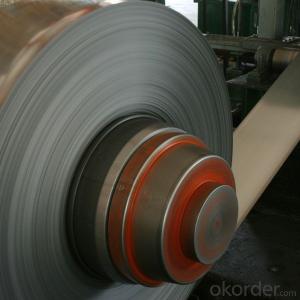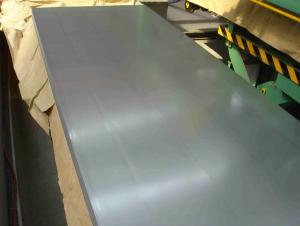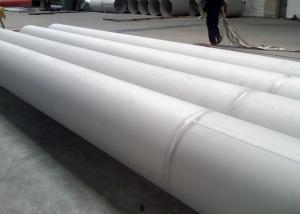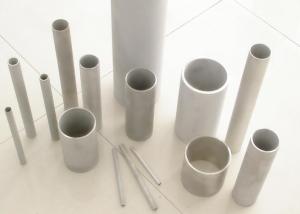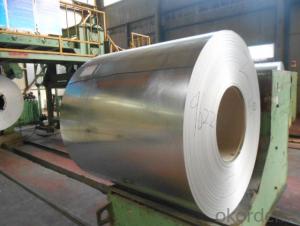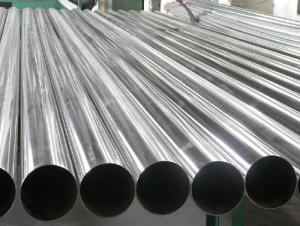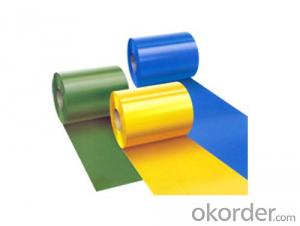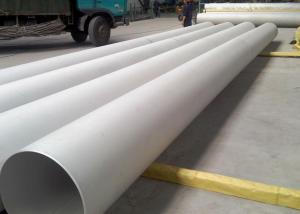Prime Quality Stainless Steel 201 304 Plate Price Cold Rolled Steel Sheet 2mm
- Loading Port:
- Shekou
- Payment Terms:
- TT OR LC
- Min Order Qty:
- 25 m.t.
- Supply Capability:
- 20000 m.t./month
OKorder Service Pledge
OKorder Financial Service
You Might Also Like
Specification
Products Description for Stainless Steel Coils/Sheets:
Name: stainless steel coils/plates/sheets
Discharge Port: Any Port, China
Cold Rolled Size: Thickness0.3-8mm,Width:280-2100mm
Hot Rolled Size: Thickness3-14mm,Width:650-2100mm
Hot Rolled/Cold Rolled Plates : Thickness2-80mm,Width:1500-3000mm
Coil Weight: About 20 Tons
Grade: 201,202,304/304L/304H, 316/316L/316H, 409/L,430 etc.
Technique: Hot Rolled/Cold Rolled
Finish:2B, BA, 2D, No1, No2 etc
Edge: Mill Edge / Slitting Edge
Packaging: In bundles, or as customer's requirement
Place of Origin: Made in China
MOQ: 20 Tons
Payment Terms: 100% LC at sight, or 100%TT in advance
Delivery Time: With 30-40 days after deposit
Features of Stainless Steel Coils
(1)Good ductility
(2)Good corrosion resistance
(3)Excellent abrasion resistance and fatigue strength
(4)Good weldability
(5)Oxidation resistant performance
(6)Excellent in high temperature
Detail picture for Stainless Steel Coils/Sheets
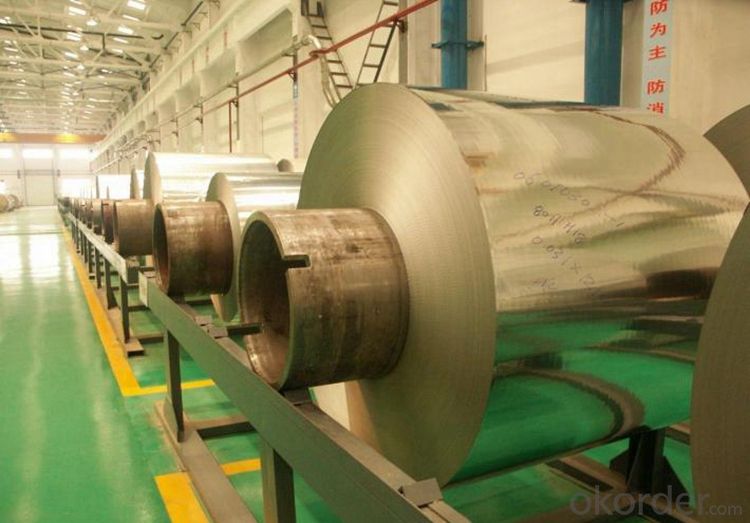
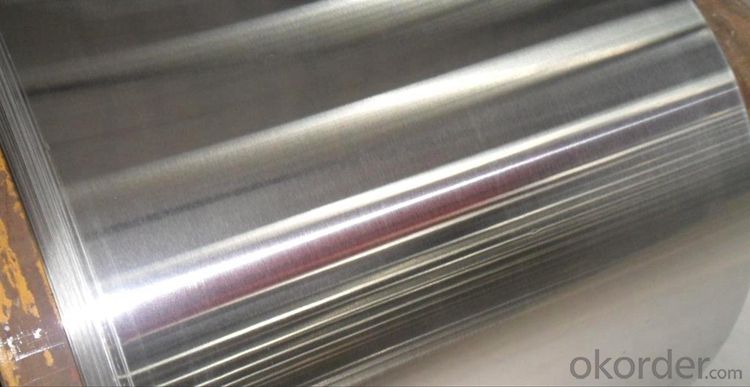
Application for Stainless Steel Coils/Sheets:
Boiler heat exchanger, machinery andpetroleum ,chemical industries, hardware fields,Food industry,construction material,kitchen utensils, building construction, medical equipment,chemical tank, pipe etc
Application for Stainless Steel Coils/Sheets
Finish | Definition | Application |
2B | Those finished, after cold rolling, by heat treatment, pickling or other equivalent treatment and lastly by cold rolling to given appropriate luster. | Medical equipment, Food industry, Construction material, Kitchen utensils. |
BA | Those processed with bright heat treatment after cold rolling. | Kitchen utensils, Electric equipment, Building construction. |
NO.3 | Those finished by polishing with No.100 to No.120 abrasives specified in JIS R6001. | Kitchen utensils, Building construction. |
NO.4 | Those finished by polishing with No.150 to No.180 abrasives specified in JIS R6001. | Kitchen utensils, Building construction, Medical equipment. |
NO.1 | The surface finished by heat treatment and pickling or processes corresponding there to after hot rolling. | Chemical tank, pipe. |
FAQ for Stainless Steel Coils/Sheets:
Q:How to order?
A: Please send us your purchase order by email or fax .or you can ask us to send you a proforma invoice for your order .We need to know the following information for your order.
1) Shipping information-company name, street address, phone number, fax number, destination sea port
2) Product information – Quantity, Specification (steel type, thickness, width, surface finish)
3) Delivery time required
4) Forwarder's contact details if there's any in China
- Q: Stainless steel without fingerprint processing how to get?
- Stainless steel no fingerprint processing: the general situation is based on grinding, wire drawing, snow sand surface processing, oil processing process done, the oil is oil - high temperature high temperature cleaning - drying - film, so the milling surface of stainless steel plate with a layer of transparent film, with a finger to touch no generate fingerprints clearly, so called "no fingerprint stainless steel".
- Q: What are the limitations of using stainless steel sheets?
- There are a number of drawbacks associated with the use of stainless steel sheets. To begin with, stainless steel sheets can be quite costly in comparison to other materials. This can make them less viable for projects or applications with budget constraints. Furthermore, stainless steel sheets are relatively heavy, which can pose challenges in terms of handling and installation, especially when dealing with large quantities. This can lead to increased labor expenses and necessitate the use of additional equipment for transportation and installation purposes. Another issue is that stainless steel sheets are prone to scratching and denting. Despite being renowned for their durability, they are not completely resistant to physical damage. Scratches and dents can compromise both the appearance and functionality of the sheets, particularly in areas with heavy foot traffic or environments prone to potential impacts. Moreover, stainless steel sheets can be susceptible to corrosion, albeit to a lesser degree compared to other metals. Under certain conditions, such as exposure to saltwater or harsh chemicals, rust or other forms of corrosion may develop on stainless steel sheets. Regular maintenance and proper care are necessary to prevent or minimize this problem. Additionally, stainless steel sheets offer limited options when it comes to color. They generally come in shades of silver or gray, which may not be suitable for projects that require specific colors or specific aesthetic preferences. Lastly, stainless steel sheets exhibit poor insulation properties. They conduct heat and cold more effectively than other materials, resulting in greater energy loss and higher heating or cooling costs. In applications where insulation is vital, additional measures or alternative materials may need to be considered. To sum up, while stainless steel sheets possess numerous advantages such as strength, resistance to corrosion, and durability, they also have limitations in terms of cost, weight, vulnerability to damage, corrosion, limited color choices, and poor insulation properties. Understanding these limitations is essential when contemplating the use of stainless steel sheets in various applications.
- Q: What are the benefits of using textured stainless steel sheets?
- There are several benefits of using textured stainless steel sheets. Firstly, the textured surface adds an aesthetic appeal to any space, giving it a unique and modern look. Secondly, the texture helps to hide fingerprints, smudges, and scratches, making it easier to maintain and clean. Additionally, the texture provides better grip and slip resistance, making it suitable for applications where safety is a concern, such as stairs or outdoor surfaces. Moreover, stainless steel is highly durable, corrosion-resistant, and hygienic, making it suitable for various industries, including food preparation, medical, and architectural.
- Q: Are stainless steel sheets good for cryogenic storage?
- Stainless steel sheets are widely utilized in cryogenic storage owing to their exceptional characteristics. Renowned for its remarkable strength, durability, and corrosion resistance, stainless steel proves to be ideal for extreme temperature settings such as cryogenic storage. Furthermore, stainless steel retains its mechanical properties even under extremely low temperatures, guaranteeing the safety and integrity of stored materials. Moreover, stainless steel sheets exhibit favorable thermal conductivity, enabling efficient heat transfer throughout cryogenic processes. As a result, stainless steel sheets emerge as a dependable option for cryogenic storage purposes.
- Q: Can stainless steel sheets be painted or coated?
- Yes, stainless steel sheets can be painted or coated. However, it is important to properly prepare the surface by cleaning and applying a suitable primer before painting or coating to ensure adhesion and durability of the finish.
- Q: Can stainless steel sheets be used for food packaging equipment?
- Yes, stainless steel sheets can be used for food packaging equipment. Stainless steel is a popular material choice for food processing and packaging equipment due to its durability, corrosion resistance, and hygienic properties. It is non-reactive, which means it does not interact with the food, ensuring that the quality and taste of the food remain intact. Stainless steel sheets can be easily cleaned and sanitized, making them suitable for use in food packaging equipment where cleanliness and hygiene are of utmost importance. Additionally, stainless steel has a smooth surface, which makes it easy to handle and prevents food particles from sticking to the equipment. Overall, stainless steel sheets are a reliable and safe option for food packaging equipment.
- Q: Is stainless steel plate permitted to contact galvanized material?
- I think I can touch it, but there may be some rusty ones attached to stainless steel
- Q: Are stainless steel sheets suitable for food packaging equipment?
- Yes, stainless steel sheets are highly suitable for food packaging equipment. Stainless steel is a popular choice in the food industry due to its numerous advantageous properties. First and foremost, stainless steel is non-reactive, meaning it does not interact with food or alter its taste, smell, or appearance. This makes it safe for direct contact with food products. Additionally, stainless steel is resistant to corrosion, rust, and staining, which ensures the durability and longevity of the equipment. It is also easy to clean and sanitize, making it ideal for maintaining high levels of hygiene required in food packaging processes. The smooth surface of stainless steel sheets minimizes the risk of bacterial growth and simplifies the cleaning process. Furthermore, stainless steel has excellent strength and heat resistance properties, allowing it to withstand high temperatures without deforming or compromising its structural integrity. This is particularly important in food packaging equipment where heat sealing or thermal processing is involved. In conclusion, stainless steel sheets are highly suitable for food packaging equipment due to their non-reactive nature, corrosion resistance, ease of cleaning, and high strength. These qualities make stainless steel a reliable and hygienic choice for ensuring the safety and quality of food products during packaging processes.
- Q: Can stainless steel sheets be used for elevator wall panels?
- Elevator wall panels can indeed be constructed using stainless steel sheets. The utilization of stainless steel as a material for elevator interiors is highly favored due to its robustness, cleanliness, and aesthetic attractiveness. It imparts a sleek and contemporary appearance that enhances the overall look of the elevator. Furthermore, stainless steel is resistant to corrosion, staining, and scratching, rendering it suitable for high-traffic areas such as elevators. Moreover, it is effortless to clean and maintain, guaranteeing that the elevator walls remain in optimal condition for an extended period. What's more, stainless steel sheets can be tailored to meet specific design requirements and preferences, offering a plethora of finishes, patterns, and colors that can harmonize with the building or elevator's design. Ultimately, stainless steel sheets prove to be a superb option for elevator wall panels.
- Q: Can stainless steel sheets be polished?
- Yes, stainless steel sheets can be polished. Polishing stainless steel sheets helps to improve their appearance by creating a smooth and shiny surface. The process typically involves using abrasive materials such as sandpaper, polishing compounds, or polishing machines to remove any imperfections or scratches on the surface of the stainless steel sheet. This can be done manually or with the help of specialized equipment. Polishing stainless steel sheets not only enhances their aesthetic appeal but also helps to prevent corrosion and improve their resistance to staining.
Send your message to us
Prime Quality Stainless Steel 201 304 Plate Price Cold Rolled Steel Sheet 2mm
- Loading Port:
- Shekou
- Payment Terms:
- TT OR LC
- Min Order Qty:
- 25 m.t.
- Supply Capability:
- 20000 m.t./month
OKorder Service Pledge
OKorder Financial Service
Similar products
Hot products
Hot Searches
Related keywords
